Today’s Current Affairs: 13th Mar 2024 for UPSC IAS exams, State PSC exams, SSC CGL, State SSC, RRB, Railways, Banking Exam & IBPS, etc
Table of Contents
Parrot Fever:
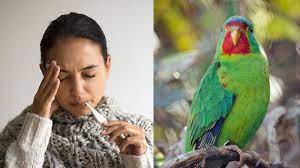
Parrot fever, also known as psittacosis, is a respiratory bacterial infection caused by the bacterium Chlamydia psittaci.
- The infection primarily affects birds, such as parrots, pigeons, and poultry, but can be transmitted to humans through inhaling particles from bird feathers or droppings.
- Symptoms include fever, headache, chills, muscle pains, coughing, difficulty breathing, and gastrointestinal symptoms.
- Treatment involves antibiotics, such as doxycycline or tetracycline, along with supportive care and symptomatic relief.
- Prevention includes proper hygiene practices, such as handwashing and avoiding close contact with sick birds.
Sela Tunnel In Arunachal Pradesh : Inaugration
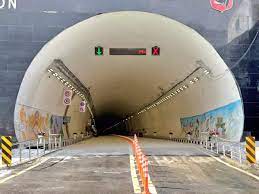
PM Modi inaugurates the Sela Tunnel in Arunachal Pradesh, built at an altitude of 13,700 feet by the Border Roads Organisation.
- The all-weather Sela Tunnel is built on the road linking Tezpur (Assam) to Tawang in the West Kameng district of Arunachal Pradesh. Constructed using the New Austrian Tunnelling Method (NATM), it stabilizes the tunnel perimeter with sprayed concrete and other support while ensuring stability through regular monitoring.
- This bi-lane tunnel, stretching approximately 1.5 kilometres.
- Stands as the world’s longest (at an altitude above 13,000 feet), offering crucial all-weather connectivity.
Gorsam Kora Festival:
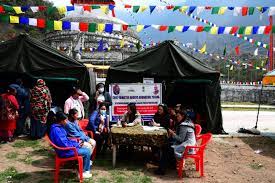
The Gorsam Kora Festival, held annually in Arunachal Pradesh’s Zemithang valley, concluded, celebrating the shared Himalayan Buddhist cultural heritage and the enduring friendship between India and Bhutan.
- It is Located along the Nyanmjang Chu River, Zemithang is historically significant as the refuge where the 14th Dalai Lama sought sanctuary in 1959.
- The festival, centred around the 93-foot tall stupa – ‘Gorsam Chorten’ built in the 13th century.
- It attracts thousands of devotees, including Bhutanese nationals, for prayers and traditional rituals.
2024 Pritzker Architecture Prize:

Riken Yamamoto, a Japanese architect, was awarded the 2024 Pritzker Architecture Prize, often dubbed the “Architecture Nobel“.
- Riken Yamamoto, the ninth laureate from Japan, is known for projects like the Hiroshima Nishi Fire Station (2000) and the Koyasu Elementary School (2018), which emphasize transparency and interaction in architectural design.
- Pritzker Architecture Prize established in 1979 by the Pritzker family of Chicago, it recognizes living architects for their significant contributions to humanity and the built environment.
- The laureate receives $100,000 and a bronze medallion.
Mission Divyastra:
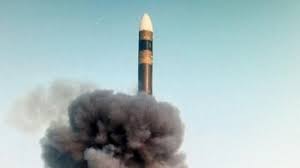
The Prime Minister of India announced successful maiden flight test of Agni-5 missile with MIRV technology, code-named Mission Divyastra, boosting India’s defence capability.
- Mission Divyastra the maiden flight test of the locally developed Agni-5 missile with multiple independently targetable re-entry vehicle (MIRV) technology and code named as Mission Divyastra.
- Agni-5 missile uses a three-stage solid fuelled engine and has a range of more than 5,000km.
- Agni series has medium to Intercontinental versions of Agni missile systems 1 to 5 with a varying ranges — starting from 700 km for Agni-1 to 5000 km and above for Agni-5.
- In June 2021, DRDO successfully tested Agni P, a canisterised missile with a range capability between 1,000 and 2,000 km.
- This means that the missile can be launched from road and rail platforms, making it easier for it to be deployed and launched at a quicker pace.
Lachit Borphukan : Bronze Statue Unveiled
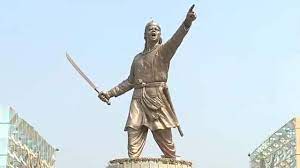
The Prime Minister of India unveiled a 125-foot bronze statue of Ahom general Lachit Borphukan at his burial site in eastern Assam’s Jorhat district.
- Lachit Borphukan was a legendary army commander of the Ahom kingdom (1228-1826). He was known for his leadership in the 1671 ‘Battle of Saraighat’.
- He defeated the Mughal forces, led by Raja Ramsingh-I, in this battle, and thwarted a drawn-out attempt by them to take back Assam.
- He was chosen as one of the five Borphukans of the Ahom kingdom by king Charadhwaj Singha and given administrative, judicial, and military responsibilities.
- Borphukan preferred guerrilla tactics which provided an edge to his smaller, but fast moving and capable forces.
- He was buried at the ‘maidam’ burial grounds for Ahom royals and nobles at Hollongapar, after passing away a year after the battle at the age of 49 due to illness.
Revamped Pharmaceuticals Technology Upgradation Assistance Scheme:

The Department of Pharmaceuticals, Ministry of Chemicals and Fertilizers has announced the Revamped Pharmaceuticals Technology Upgradation Assistance (RPTUAS) Scheme.
- Revamped Pharmaceuticals Technology Upgradation Assistance Scheme is to offer “subsidies based on quality” reimbursement, aiding pharmaceutical companies in achieving revised Schedule M and WHO-GMP certifications.
- The revised guideline aims to support the pharmaceutical industry’s up-gradation to the Revised Schedule-M & WHO-GMP standards, enhancing the quality and safety of pharmaceutical products manufactured in our country.
- Features of the Revised Scheme:
- Reflecting a more inclusive approach, eligibility for the PTUAS has been expanded beyond Micro, Small and Medium Enterprises to include any pharmaceutical manufacturing unit with a turnover of less than 500 crores that requires technology and quality upgradation. Preference remains for MSMEs, supporting smaller players in achieving high-quality manufacturing standards.
- The scheme introduces more flexible financing options, emphasizing subsidies on reimbursement basis, over traditional credit-linked approach.
- In alignment with revised Schedule-M and WHO- Good Manufacturing Practice (GMP) standards, the scheme now supports a broader range of technological upgrades. Eligible activities include improvements such as HVAC systems, water and steam utilities, testing laboratories etc.
- The revised scheme allows integration with state government schemes, enabling units to benefit from additional top-up assistance. This collaborative approach aims to maximize support for the pharmaceutical industry in their technology upgradation efforts.
- The new benefit limit is based on turnover of the company. Units with less than Rs 5 crore turnover will get an incentive of 20 percent of investment under eligible activities.
- The units with turnover ranging from Rs 50 crore to less than Rs 250 crore will get an incentive of 15 percent of investment, while for those with turnover ranging from Rs 250 crore to less than Rs 500 crore, it will be 10 percent of investment under eligible expenses.
Minimum Alternate Tax:

The Income Tax Appellate Tribunal (ITAT) recently observed that the assessee was entitled to claim credit for Minimum Alternate Tax (MAT) under the Vivad se Vishwas (VSV) Scheme.
- Minimum Alternate Tax (MAT) is a provision in the Income Tax Act of India.
- It primarily applies to companies and is designed to ensure that companies that report substantial book profits but pay little to no income tax due to various exemptions and deductions are subject to a minimum level of taxation.
- The primary objective behind the MAT tax in India is to curb tax avoidance by companies that manipulate their financial statements to reduce their taxable income artificially.
- With the introduction of MAT, companies have to pay a fixed percentage of their profits as MAT.
- MAT is applicable to all companies, including foreign companies.
- However, it does not apply to companies that have been granted exemption under Section 10AA of the Income Tax Act, which pertains to Special Economic Zones (SEZs).
- All companies are required to pay corporate tax based on which is higher of the following:
- Tax computed as per the normal provisions of the Income-tax Law, i.e., by applying the relevant tax rate to the taxable income of the company.
- Tax computed at 15% (previously 18.5%) on book profit plus cess and surcharge.
- MAT is calculated on the “book profits” of a company, which is different from the taxable profits computed under the regular provisions of the Income Tax Act.
INS Tushil:

INS Tushil is the first Krivak-III frigate to be acquired under Project 11356M.
- India in October, 2016 signed an Inter-Governmental Agreement (IGA) with Russia to purchase/construct four additional Admiral Grigorovich-class (Project 11356M) frigates through a partnership between Russian and Indian shipyards.
- Russia will supply two of the frigates (INS Tushil and INS Tamala), while the other two will be constructed in India.
- The Talwar-class frigates, or Project 11356, are a class of stealth-guided missile frigates.
- The construction of the ships is based on the Indian Navy’s specific requirements to meet the entire spectrum of naval warfare in all three dimensions of air, surface, and sub-surface.
- These ships feature “stealth technology” in terms of low radar and underwater noise signatures.
- These ships are being equipped with major Indian-supplied equipment such as surface-to-surface missiles, sonar systems, surface surveillance radar, communication suites, and anti-submarine warfare systems, along with Russian surface-to-air missiles and gun mounts.
Citizenship (Amendment) Act, 2019:

Ministry of Home Affairs (MHA) recently notified the Citizenship Amendment Rules, 2024.
Citizenship (Amendment) Act, 2019:
- The Citizenship Amendment Act (CAA) amends the Citizenship Act of 1955 to provide a path to Indian citizenship for Hindus, Sikhs, Christians, Buddhists, Jains, and Parsis who migrated from neighbouring Muslim-majority countries such as Pakistan, Bangladesh, and Afghanistan, before December 31, 2014.
- Under the CAA, migrants who entered India till December 31, 2014, and had suffered “religious persecution or fear or religious persecution” in their country of their origin would be made eligible for accelerated citizenship.
- It relaxed the residence requirement for naturalisation of these migrants from twelve years to just six.
- The law exempts the tribal areas of Assam, Meghalaya, Mizoram, and Tripura as included in the Sixth Schedule of the Constitution, including the tribal areas of Karbi Anglong in Assam, Garo Hills in Meghalaya, Chakma district in Mizoram, and Tribal areas district in Tripura.
- It also includes a provision for the cancellation of Overseas Citizen of India (OCI) registration if the OCI cardholder violates any provision of the Citizenship Act or any other applicable law




